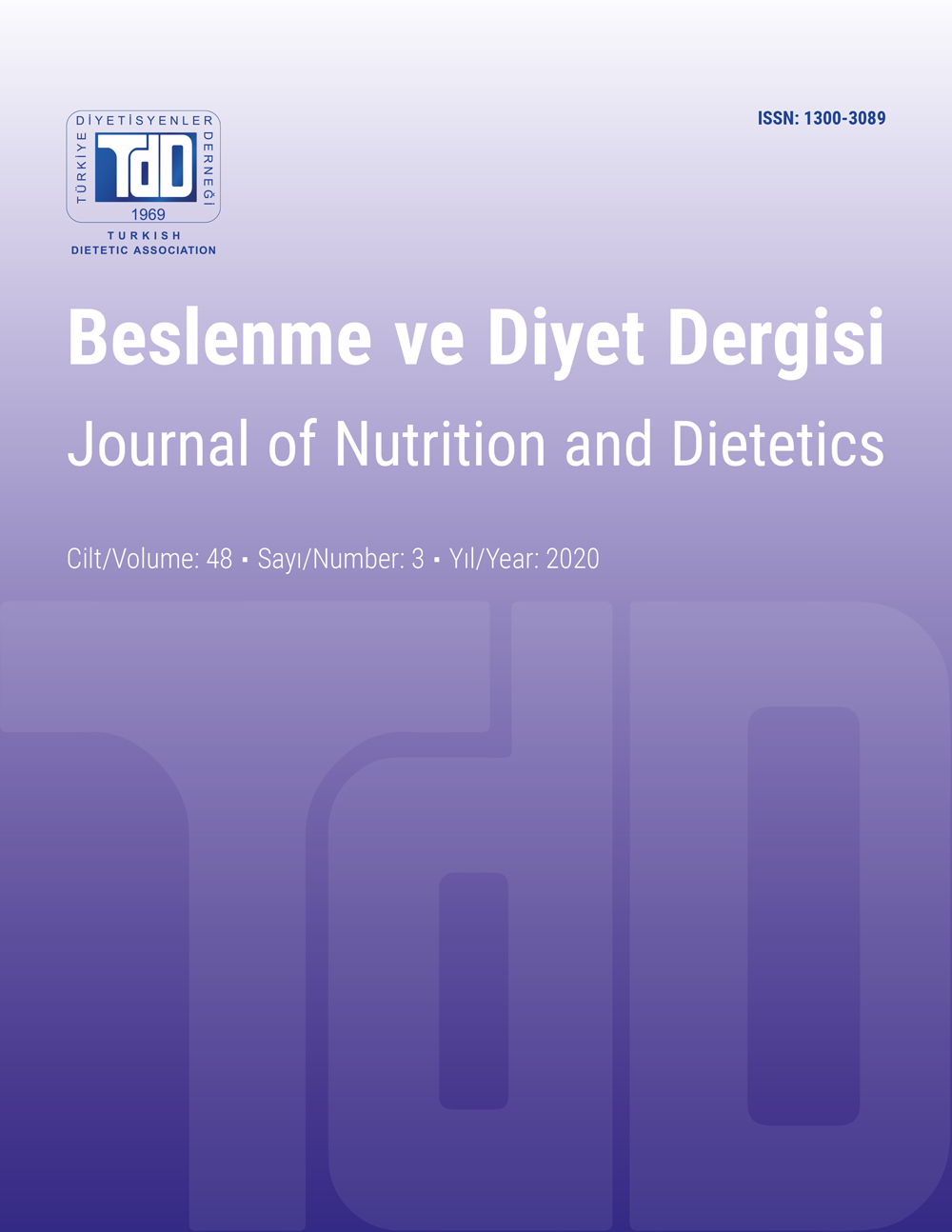Evaluation of Mediterranean Diet Quality of Selcuk University Students
DOI:
https://doi.org/10.33076/2020.BDD.1386Keywords:
Mediterranean Diet, Diet Quality, KIDMEDAbstract
Aim: In Turkey, inadequate and unbalanced nutrition is a major social problem and one of the risk groups in terms of nutrition problems is the university students. The Mediterranean diet is known to be one of the healthiest nutrition models. The aim of this study was to evaluate the Mediterranean diet quality of Selcuk University students.
Subjects and Method: The students (n=520) studying at Selcuk University participated in the study in 2017-2018 academic year. The data were obtained by using the general information form and Mediterranean Diet Quality Index for Children and Adolescents (KIDMED) form developed by Serra-Majem et al. (2004). The scores obtained from the KIDMED test were evaluated in 3 categories (≥8 points: good, 4-7 points: average, ≤3 points: poor diet quality). Students’ body weight, height, waist and hip circumference measurements were taken by the researchers.
Results: Of the participants 50.6% (n=263) were female, 49.4% (n=257) were male students and their average age was found to be 20.6±0.9 years. Total KIDMED average score of students was found to be 3.94±0.10. Of the students 64.6% were classified as normal according to the Body Mass Index (BMI) classification. In terms of KIDMED, 45.0% of the students in the study were in the poor, 47.1% in the average, and 7.9% in the good class. There was no significant relationship between KIDMED mean scores and gender of the students (p>0.05). There was a significant difference between KIDMED scores according to the faculty participants attended. The KIDMED scores of the students of Faculty of Medicine (5.24±0.25) and Faculty of Health Sciences (4.19±0.24) were found to be higher than those of other faculties (p<0.05).
Conclusion: When the KIDMED scores of the students who participated in the study were examined, it was seen that their Mediterrenean diet adherences were at the poor and average level. There was no effect of gender and BMI values on KIDMED scores of students. The adherence of the participants studying Medicine and Health to the Mediterranean diet is better compared to other students.

